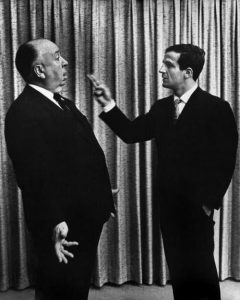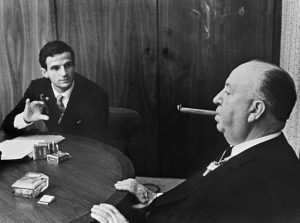Star Wars Light Saber Battles
Posted on December 16, 2015 at 11:46 am
Data curated by PrettyFamous
Posted on December 16, 2015 at 8:00 am
The one movie I make sure to watch every year at Christmas is the Alastair Sim version of “A Christmas Carol.” The final scene always brings me to tears.
Posted on December 16, 2015 at 3:01 am
A-| Lowest Recommended Age: | Middle School |
| MPAA Rating: | Rated PG-13 for sci-fi action violence |
| Profanity: | Mild language |
| Alcohol/ Drugs: | Scene in a bar |
| Violence/ Scariness: | Extensive sci-fi action-style violence with guns and explosions and many characters injured and killed, sad death |
| Diversity Issues: | Diverse characters |
| Date Released to Theaters: | December 16, 2015 |
| Date Released to DVD: | March 27, 2016 |
| Amazon.com ASIN: | B018FK66TU |

The force is strong in this thrilling new chapter in the story set a long time ago in a galaxy far, far away. Fans will get goosebumps right from the start as the familiar logo and musical theme are followed by a scrolling summary to bring us up to date — without a single mention of a tariff or bureaucratic squabbling. Instead, it has words of near-incantatory power: Luke is missing. Leia is a General. An old ally has provided a clue to Luke’s whereabouts and the best pilot of the rebel forces has been sent to retrieve it.
That pilot is the irresistibly dashing Poe Dameron (Oscar Isaac, who finally seems on the brink of the superstardom he has long deserved). Like Leia in “A New Hope,” he stashes the information in a droid, the adorable B-88, and then he is captured by stormtroopers representing the dark side of the force. Now called First Order, it is a group that has risen from the ashes of the Empire and threatens to take over again. And we know they’re evil because they mostly have plummy British accents and when they give speeches they dress like they’re appearing in a Leni Riefenstahl recruiting video.
Stormtroopers are indistinguishable in their white armor and helmets, but in the attack on a civilian village one stands out. He seems dazed and disoriented. He shows compassion for a downed member of his battalion. After returning to the ship, he is ordered to reprogramming to make sure he will never again fail to carry out an order to kill and destroy. He decides to run away. He does not know how to fly, but there is a prisoner who happens to be the best pilot of the rebel forces, our new friend Poe. “Why are you helping me?” Poe asks with understandable suspicion. “Because it’s the right thing to do.” Our Poe is not fooled. “You need a pilot,” he wisely responds.
Whatever. They both want to get the heck out of there, and that is good enough for the moment. Plus, the defecting stormtrooper speaks with an American accent (even though he is played by British actor John Boyega), so he must be okay.
Meanwhile, a scavenger named Rey (Daisy Ridley, yes she has an English accent but is so obviously honorable and kick-ass great that it just sounds elegant, not evil) encounters B-88. And some old friends from the original trilogy show up for call-outs, tributes, and variations on beloved memories.
Co-writer/director J.J. Abrams has a deep understanding and respect for the original characters and themes going back to the very first episode, now chronologically chapter IV and retitled “A New Hope.” He co-wrote this film with Lawrence Kasdan, the screenwriter of Chapter V: “The Empire Strikes Back,” generally considered the strongest in the series. They seamlessly bring the story forward with new characters who are vital and engaging. The special effects and mechanics are superbly designed and the action is brilliantly staged.
I wish I could tell you more but I can’t spoil the wonderful surprises, so just let me just say that this is the “Star Wars” you’ve been looking for. Be sure to check out the deleted scenes and other extras on the splendid DVD/Blu-Ray
Parents should know that this movie has extensive sci-fi peril and violence with many characters injured and killed and a very sad death. There are issues of totalitarianism, loss, and betrayal.
Family discussion: Why didn’t Finn have a name? How are Ren and Hux different? Who do you think Rey’s parents are?
If you like this, try: the original “Star Wars” trilogy
Posted on December 15, 2015 at 3:36 pm

If you are very lucky, some day a book will change your life. And no book changed my life more profoundly than Hitchcock/Truffaut, a book-length interview of one of the world’s greatest movie directors by another who happened to be a former film critic and scholar. I was a movie-mad teenager when someone suggested this book to me, and it completely transformed the way I watched and thought about movies. So I was thrilled to see the wonderful new documentary “Hitchcock/Truffaut” by film critic/historian Kent Jones, with some of today’s greatest directors talking about how the book and Hitchcock’s work influenced and inspired them.
In an interview, Jones talked about his choice for the movie’s narrator, actor/director/screenwriter Bob Balaban. “I wanted only filmmakers in the movie. I didn’t want any experts or historians or actors or anything like that. I just wanted filmmakers because it was a dialogue between filmmakers. And so I wanted ideally somebody who was a filmmaker as well to be the narrator and Bob of course you know in addition to being an actor and director of movies and beyond that Bob also was Truffaut’s friend. They became good friends when they made ‘Close Encounter of the Third Kind,’ so for all those reasons and also I like Bob and I like his voice.”
The documentary includes some scenes with the translator who worked with the two men because their only real common language was the language of cinema. “It’s interesting, there’s a good rapport between the two of them and you could say between the three of them because she is very much a part of the conversation, in and of itself. There are moments when she and Hitchcock are talking. She was really attached to Truffaut as a friend, as a filmmaker, someone who was really smitten with him as a human being. But I don’t think that it really impeded the flow, I mean they had a good rapport. They were both filmmakers and the trends of the conversation were very clear. On the other hand there’s a lot of stuff that she gets wrong, like the names of certain film producers for instance when they were trying to talk about what movies he’s seen and what he hadn’t seen when he was young. There are different titles in different countries so try to figure out what movie it they were talking about was a little bit of a challenge. I think also Hitchcock understood French, he actually spoke it. But nonetheless throughout the tape, even in the movie when he’s talking about vertigo he doesn’t say ‘necrophilia’ he says ‘necrophilie’. You know he inserts a little French pronunciation. Truffaut on the other and really didn’t understand English but having said all that I think the flow of their conversation is pretty seamless.”
While Hitchcock was still dismissed as a genre director in the US of the 1960’s, the French “new wave” filmmakers and critics were the first to take him seriously as a master of cinematic storytelling. “What we call ‘auteurism’ now is very tied into the distance of time and the distance of space. It is very important that it was a group of people from across the Atlantic looking at America through different lens, looking at American filmmaking through their own lens. Obviously Hitchcock wasn’t alone, Nick Ray, Howard Hawks and all these people. Even people who say ‘I hate auteurism; it’s ridiculous’ when they write their reviews nonetheless they’ll refer to Michael Bay’s ‘Transformers 4.’ I mean they don’t know it but they have been transformed by the idea. And so I think that’s always a great thing when somebody gets people to accept something in a new light and gives people a new way of seeing the work that they thought that they knew. I think that that’s a great thing and it’s just really fruitful in this case, it just kind of opened the door to a really exalted idea in cinema.”

We agreed that the Montgomery Clift film, “I Confess” is one of Hitchcock’s underrated gems. Clift plays a priest who learns of a murder in confession and then himself becomes a suspect but cannot reveal what he has heard. “I love ‘I Confess.’ I think it’s great. Maybe you could say that in some of those 50’s movie things get a little telescoped at the very, very end. I really love the atmosphere of it, I love Clift, I love the presence of Québec City in the movie. I thought that those flashbacks were incredibly beautiful. It’s the film that my mother loved.” Jones objects to some of the conventional wisdom that Hitchcock did not work well with actors. He spoke about the special relationship Hitchcock had with Grace Kelly, James Stewart, and Cary Grant, who gave some of their best performances in his films. “Doris Day gives her most interesting and vulnerable performance in ‘The Man Who Knew Too Much,’ better than in ‘Love Me or Leave Me’ just riveting.”
Jones was reluctant to pick a favorite Hitchcock film because he likes to look at it as a body of work. “Within the history of Hollywood studio system of filmmaking, that’s the best body of work there is bar none. I mean the only body of work that I can think of that is kind of like it in terms of somebody working into the studio system where every film is as good is Yasujirō Ozu. There is no movie that he ever made that was at second gear, ever. And having said that I don’t know, I could narrow it down to about 10 or 12 or something maybe ‘Notorious’ or ‘Vertigo’ or ‘Rear Window.’ I don’t know it’s impossible for me.”
Posted on December 15, 2015 at 8:00 am
I’m going to post clips from ten of my favorite holiday films, starting with one I recommend every year, This Christmas. This delightful line dance scene comes at the very end and it is especially fun because it is the actors having fun on screen, not their characters. Watch for Delroy Lindo (“Blood & Oil”), Loretta Devine (“Being Mary Jane”), Columbus Short (“Scandal”), Regina King and Idris Elba (both nominated for Golden Globes this year), and Lauren London (“The Game”).